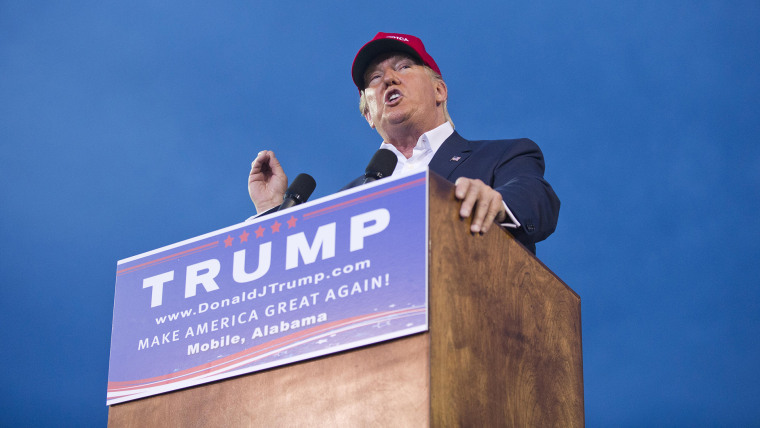When Donald Trump kicked off his Republican presidential campaign, he was officially a candidate, but he wasn't a real candidate, at least not in every sense of the word. The New York developer had a skeleton staff, little support in the polls, no field offices, no organization in early nominating states, no endorsements, and no national campaign infrastructure.
As of mid-June, Trump was effectively a candidate in name only. He had an escalator, some animosity towards immigrants, and little else. By some accounts, the GOP contender had to pay people to show up at his campaign kick-off.
It didn't matter. The former reality-show host quickly found a following, which grew at an unexpected rate. Media attention soon followed. Trump didn't spend much time on the campaign trail -- he's largely forgone the usual candidate-like activities -- but he's nevertheless dominating, at least for now.
All of which raises the question: if Trump can rocket to the front of the Republican pack without the backing of a real national campaign, what happens when the GOP candidate starts trying?
We're about to find out. Iowa's Sam Clovis, a prominent Republican activist and media figure in Iowa, had served for months as the state chairman of Rick Perry's presidential campaign, until this week, when Clovis gave up on the former Texas governor and joined Team Trump.
Rachel noted on the show last night that Clovis isn't the only one, and the Washington Monthly's Ed Kilgore took a look this morning at the operation Clovis is going to help lead -- featuring activists one might not expect to see backing Trump.
[Trump's] national campaign chairman, Corey Lewandowski, made his bones with the Koch Brothers’ Americans for Prosperity outfit (and its predecessor group, Citizens for a Sound Economy). Along with Clovis, Trump yesterday announced another eye-catching hire for his South Carolina campaign: Nancy Mace, the first woman to graduate from The Citadel, and an unsuccessful challenger to Lindsey Graham last year.
They join Matt Ciepielowski, Trump's New Hampshire director, "another AFP alumnus who spent the 2012 cycle with Youth for Ron Paul."
Kilgore's point is that these aides weren't obvious choices for Team Trump, and though they may have been wooed by "Trump's nose-thumbing at the Republican Establishment," they should also probably prepare themselves for the possibility that their candidate will "get bored with politics and bow out before things get serious."
In a year like this, anything's possible. But I'm also struck by a related thought: those are actual campaign officials, taking on actual campaign responsibilities.
It's a bizarre dynamic on its face -- usually a candidate builds a team, starts campaigning, and climbs in the polls, in that order. With Trump, he climbed in the polls, started campaigning, and then built a team.
What I'll be eager to see is whether this helps or hurts his aspirations. The moment Trump makes the transition from "outlandish personality" to "legitimate Republican contender," do his followers lose interest? Does Trump?
If the candidate reached the top in part by being non-traditional, does the magic disappear when a proper campaign organization takes shape?
